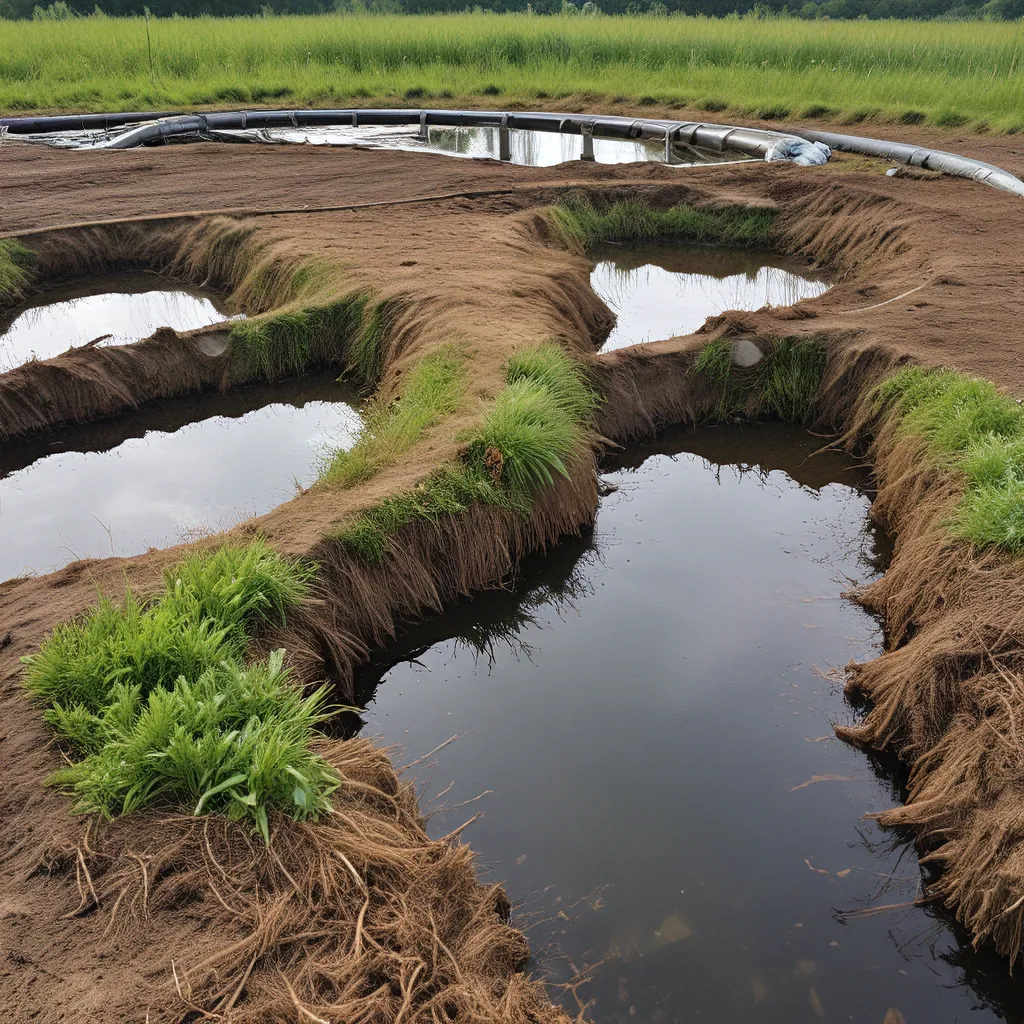
As I delve into the fascinating world of wastewater treatment and the circular bioeconomy, I can’t help but feel a sense of excitement and wonder. It’s a realm where science, technology, and sustainability collide, and the possibilities are truly awe-inspiring.
The Untapped Potential of Wastewater
Picture this: every day, countless gallons of wastewater flow through our pipes, often viewed as a mere nuisance to be discarded. But what if I told you that this “waste” is actually a treasure trove of untapped bioproducts and bioenergy? That’s right, my friends – the very same wastewater we’ve been treating and disposing of could hold the key to a more sustainable future.
Emerging research suggests that by leveraging the organic matter and nutrients present in wastewater, we can transform this seemingly endless stream into a valuable resource. Just imagine – instead of simply treating and releasing the water, we could be extracting biofuels, bioplastics, biochemicals, and a whole host of other valuable bioproducts. It’s a paradigm shift that could revolutionize the way we think about waste management.
The Circular Bioeconomy: Closing the Loop
This is where the concept of the circular bioeconomy comes into play. Rather than the traditional linear model of “take, make, waste,” the circular bioeconomy seeks to create a closed-loop system where waste is minimized, and valuable resources are continuously recycled and reused.
Wastewater treatment plants are at the heart of this circular bioeconomy, serving as hubs where organic waste streams can be transformed into a treasure trove of bioproducts and bioenergy. Imagine a future where the very same water we flush down the drain could be used to power our homes, fuel our vehicles, and even create the clothes we wear.
Harnessing the Power of Organic Waste
So, how exactly do we unlock the potential of this wastewater wonderland? It all starts with the innovative technologies and processes being developed by forward-thinking researchers and engineers.
One of the most promising avenues is the production of biofuels from the organic matter found in wastewater. Through a process called anaerobic digestion, microorganisms can break down this organic material and generate biogas, which can then be converted into renewable natural gas or bioethanol – clean, sustainable fuels that can power our homes, businesses, and transportation.
But the benefits don’t stop there. Wastewater also contains a wealth of nutrients, such as nitrogen and phosphorus, which can be recovered and repurposed as biofertilizers. Imagine a scenario where the very same waste that once polluted our waterways is now nourishing our crops and helping to grow the food we eat.
Researchers are also exploring the extraction of valuable biochemicals from wastewater, including bioplastics, surfactants, and even biopharmaceuticals. These bioproducts can then be used to create a wide range of sustainable consumer goods, from eco-friendly packaging to renewable medical supplies.
Embracing the Future of Wastewater
As I ponder the incredible potential of wastewater, I can’t help but feel a sense of excitement and optimism. This is more than just a technological revolution – it’s a chance to fundamentally rethink the way we approach waste management and resource utilization.
By embracing the principles of the circular bioeconomy, we can transform our wastewater treatment facilities into thriving hubs of bioproduction and bioenergy generation. And who knows, maybe one day, the very same water we once flushed away will be powering our homes, nourishing our crops, and even contributing to the clothes on our backs.
It’s a future that’s both exciting and within our grasp. All it takes is a willingness to think outside the box, to embrace innovation, and to realize that the solutions to our most pressing environmental challenges may have been flowing right under our noses all along.
So, what are you waiting for? Let’s dive in and explore the incredible world of wastewater treatment and the circular bioeconomy. Alpha Wastewater is here to guide you on this journey, unlocking the untapped potential of your waste streams and helping to build a more sustainable tomorrow.